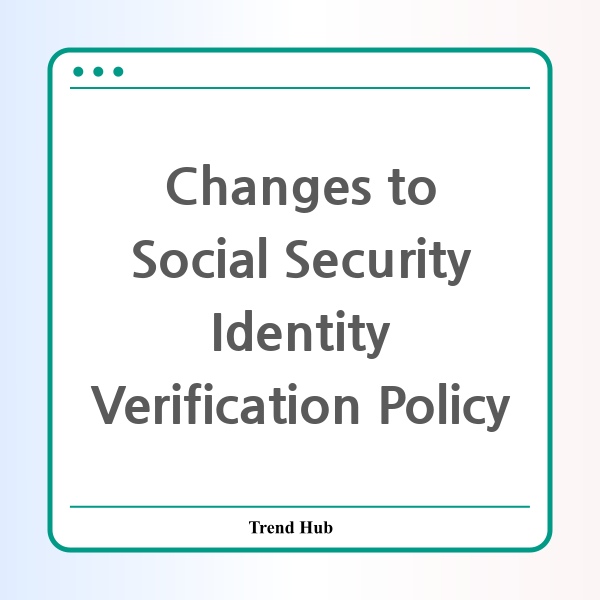* This website participates in the Amazon Affiliate Program and earns from qualifying purchases.

Is Social Security's New Identity Verification Policy Harming Those Who Need Help the Most?
The Social Security Administration (SSA) has recently announced significant changes to its identity verification policy, a move that raises questions about accessibility and the impact on some of the nation’s most vulnerable populations. With a delay in the policy rollout and mixed messages about how beneficiaries will authenticate their identities, many are left wondering what this means for their access to essential benefits.
Originally, the SSA planned to enforce a controversial new identity verification policy starting March 31. This would have required applicants who couldn’t verify their identities online to visit a Social Security field office in person. This policy primarily affects individuals applying for retirement, survivors, or family benefits. However, in response to public backlash and advocacy from concerned groups, the rollout has now been pushed to April 14 and will only partially affect those submitting applications for specific types of benefits.
For those applying for Social Security Disability Insurance (SSDI), Medicare, or Supplemental Security Income (SSI), the SSA has relented and will allow these applicants to complete their claims entirely over the phone if they cannot use the online portal. This decision follows vocal criticism from advocates who argued that the in-person requirement would unduly burden senior citizens and individuals with disabilities, many of whom may struggle to travel to agency offices.
The rationale behind the new identity verification policy is to combat rampant fraud and waste within the Social Security system, a claim made by government officials who suggest that these issues are widespread. However, many lawmakers and advocacy groups argue that the proposed measures add unnecessary hurdles for individuals already facing challenges in accessing their benefits.
AARP’s Chief Advocacy and Engagement Officer voiced that while the decision to delay the changes is a positive step, it is not sufficient. She emphasized the need for a thorough and inclusive approach to revising customer service policies within the SSA, particularly as 72.5 million Americans rely on these benefits.
The ongoing modifications and reversals in policies have also drawn attention to the broader implications for Social Security operations. With field offices closing and understaffing issues, the prospect of increased in-person visits raises fears of long wait times and delayed payments for individuals awaiting essential support.
There is a palpable tension regarding how the SSA is evolving under new leadership. Acting commissioner Lee Dudek has indicated that they are eager to listen to feedback from the public and adjust policies accordingly; however, implementation dates and how changes will affect day-to-day operations remain uncertain.
In light of these developments, it’s crucial for individuals who rely on Social Security benefits to stay informed about their rights and the latest policies. If you are impacted by this or have concerns about verifying your identity and accessing benefits, reach out to support organizations or community resources that can provide guidance on navigating these changes.
In conclusion, while the SSA's efforts to tighten identity verification may aim to reduce fraud, the measures must not obstruct access for those who genuinely need help. As the new policy rolls out, ongoing dialogue between public agencies, beneficiaries, and advocacy groups will be essential to ensuring that the Social Security system remains a safety net for millions of Americans.
* This website participates in the Amazon Affiliate Program and earns from qualifying purchases.